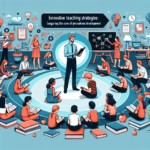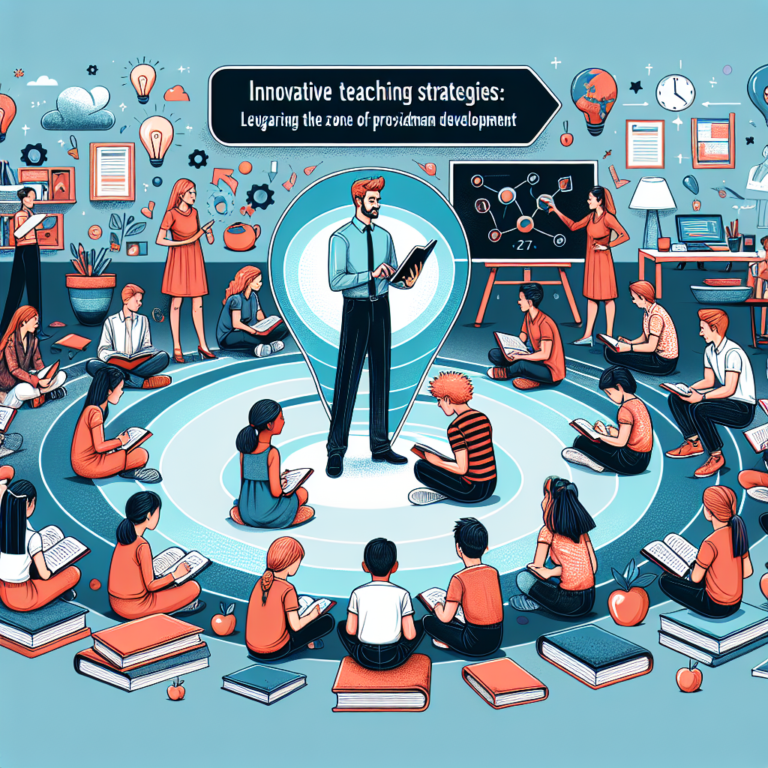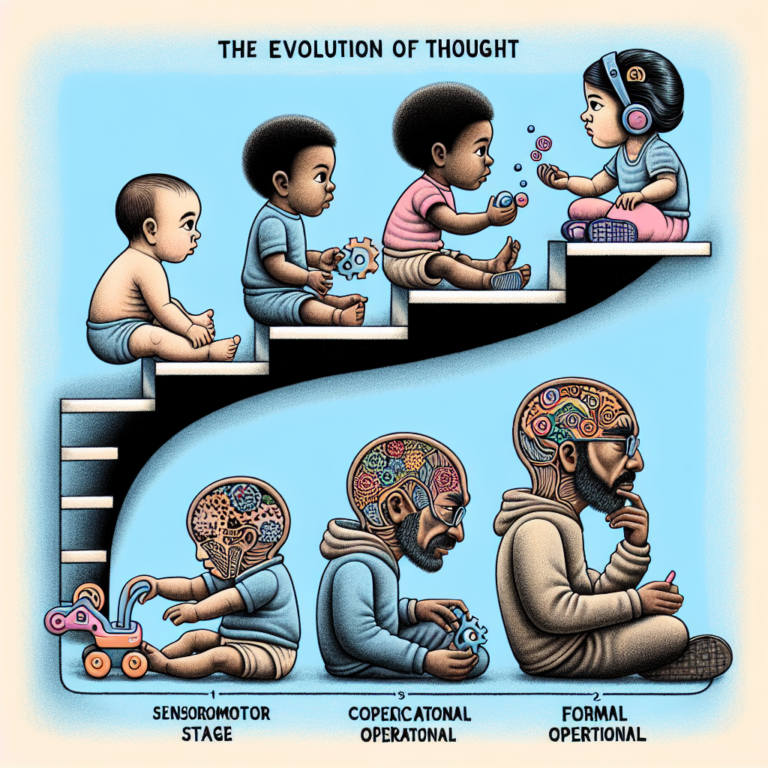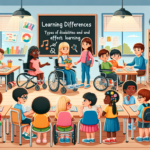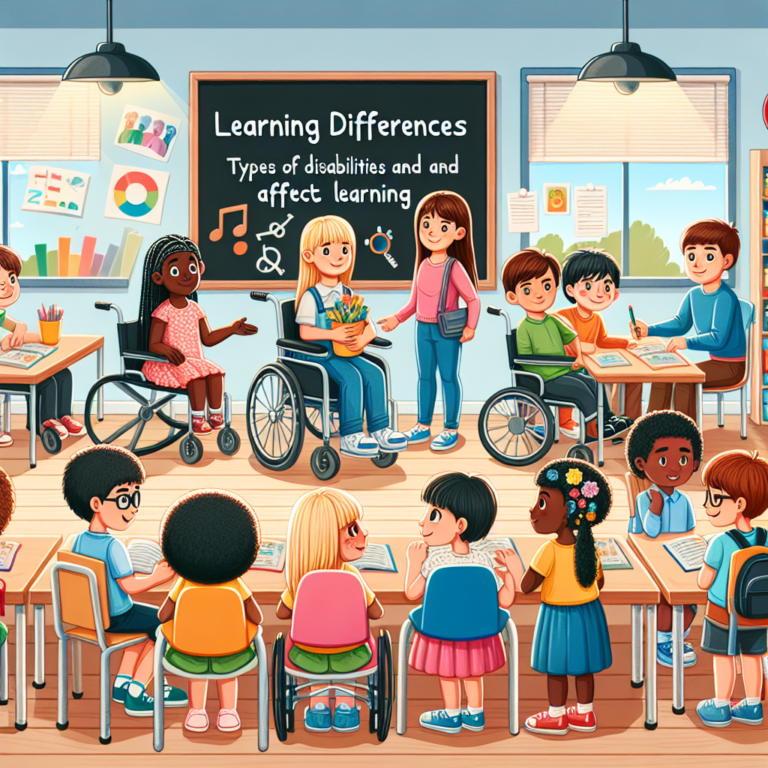
Introduction
Imagine a world where a child’s every interaction transforms their understanding of reality. This is the essence of Jean Piaget’s theory of cognitive development, a remarkable framework that elucidates how children progress from simple sensory experiences to complex abstract reasoning. In this exploration of "From Sensory Play to Abstract Thought: A Journey Through Piaget’s Developmental Stages," we will delve deep into Piaget’s four developmental stages, illuminating the vital changes that occur and their implications for education and child development.
The journey through these stages is not merely academic; it offers profound insights for parents, educators, and psychologists alike. Understanding this progression empowers us to foster environments that nurture inquiry, creativity, and critical thinking. Let’s embark on this enlightening journey, examining each stage through real-world case studies, data visualization, and actionable insights.
The Four Stages of Cognitive Development
Jean Piaget proposed four key stages of cognitive development: the Sensorimotor, Preoperational, Concrete Operational, and Formal Operational stages. Each stage is marked by distinct milestones, representing profound shifts in how children understand and interact with their world.
1. Sensorimotor Stage (0-2 years)
Overview
During the sensorimotor stage, infants learn through direct sensory experiences and motor activities. They explore the world using touch, sight, sound, and movement, gradually developing an understanding of object permanence—the realization that objects continue to exist even when they cannot be seen.
Key Characteristics
- Development of Object Permanence: Babies learn that even when something is out of sight, it still exists.
- Goal-Directed Actions: Children start to deliberately interact with their environment.
Case Study: Sarah’s Discovery
In a daycare setting, an observation of a 10-month-old named Sarah provides a glimpse into this stage. Sarah excitedly plays with a colorful ball. When it rolls under a couch, she does not simply cry; instead, she crawls over to retrieve it. This behavior signals her developing object permanence—a crucial milestone in the journey from sensory play to abstract thought.
Insights
Promoting sensory play during this stage is essential. Activities like water play, texture exploration, and simple problem-solving tasks can significantly enhance cognitive growth.
2. Preoperational Stage (2-7 years)
Overview
In the preoperational stage, children begin to engage in symbolic play and develop language skills. However, their thinking remains intuitive rather than logical. They are egocentric, meaning they struggle to see perspectives other than their own.
Key Characteristics
- Symbolic Thinking: Children use symbols (e.g., words and images) to represent objects.
- Egocentrism: Difficulty in understanding viewpoints of others.
Case Study: Alex’s Imaginative Play
A well-documented case involves a 5-year-old boy named Alex, who transforms a cardboard box into a spaceship during playtime. His imagination knows no bounds as he describes intergalactic adventures as his peers watch in awe. While his play is purely imaginative, the symbolic actions he exhibits signal a critical advancement in cognitive functioning.
| Developmental Aspect | Preoperational Stage |
|---|---|
| Typical Age Range | 2-7 years |
| Key Skills | Imagination, language development, basic problem-solving |
| Common Limitations | Egocentric thinking, limited understanding of conservation |
Insights
Activities facilitating symbolic play, such as role-playing and storytelling, can significantly enhance cognitive skills during this stage. Educators should harness this zest for imagination to foster learning.
3. Concrete Operational Stage (7-11 years)
Overview
When children reach the concrete operational stage, their thinking becomes more logical and organized, though it still has limitations. They can perform mental operations on concrete objects and events but struggle with abstract concepts.
Key Characteristics
- Logical Thinking: Children can understand the concept of conservation—that quantity remains the same despite changes in shape or arrangement.
- Decentration: They can consider multiple aspects of a situation.
Case Study: Mark’s Math Challenge
In a fifth-grade math class, a boy named Mark initially struggles with the concept of fractions. However, after engaging in hands-on activities using fraction tiles, he begins to grasp the concept. The use of tangible materials aids Mark in transitioning from a surface-level understanding to a more concrete knowledge of mathematical operations.
| Developmental Aspect | Concrete Operational Stage |
|---|---|
| Typical Age Range | 7-11 years |
| Key Skills | Logical reasoning, understanding of conservation, problem-solving |
| Common Limitations | Dependency on concrete objects rather than abstract ideas |
Insights
Employing manipulatives and real-world problem-solving scenarios promotes effective learning at this stage. Educators should encourage experiential learning for deeper understanding.
4. Formal Operational Stage (11 years and up)
Overview
In the formal operational stage, individuals develop the ability to think abstractly, logically, and systematically. They can form hypotheses and consider abstract ideas, enabling more complex reasoning.
Key Characteristics
- Abstract Thinking: Ability to solve problems using hypothetical reasoning.
- Logical Deduction: Individuals can draw conclusions from premises.
Case Study: Emma’s Research Project
Emma, a high school student, embarks on a science project to investigate climate change’s effects on local ecosystems. She formulates hypotheses, designs experiments, and analyzes data, showcasing her capacity for abstract and strategic thinking.
| Developmental Aspect | Formal Operational Stage |
|---|---|
| Typical Age Range | 11 years and up |
| Key Skills | Abstract reasoning, hypothesis formulation, systematic planning |
| Common Limitations | Emotional factors influencing judgment |
Insights
Encouraging critical thinking through debates, research projects, and complex problem-solving plays a vital role in fostering development during this stage. Education systems must embrace teaching strategies that challenge students to think beyond concrete ideas.
Conclusion
The journey from sensory play to abstract thought as explained through Piaget’s developmental stages is not merely an academic exercise; it is a roadmap for nurturing our children’s cognitive and emotional growth. From the formative experiences of infancy to the abstract reasoning of adolescence, each stage builds upon the last, equipping children with the tools necessary to navigate the complexities of the world.
By understanding these stages, parents and educators can create enriched environments that stimulate curiosity, foster creativity, and promote critical thinking. Whether through hands-on learning experiences, imaginative play, or rigorous academic challenges, the possibilities for growth are boundless.
FAQs
1. What is the importance of sensory play in early childhood?
Sensory play engages children’s senses and supports cognitive development by promoting exploration and learning through real-world experiences.
2. How can I support my child during the preoperational stage?
Encourage imaginative play, provide opportunities for symbolic expression, and engage in storytelling to enhance their cognitive skills.
3. What are effective teaching strategies for the concrete operational stage?
Utilize manipulatives, real-life problem-solving scenarios, and hands-on activities that promote logical reasoning and understanding of complex concepts.
4. How can parents foster abstract thinking in adolescents?
Encourage participation in debates, research projects, and activities that require hypothesis formulation to promote critical and abstract thinking.
5. How does Piaget’s theory apply to modern education?
Piaget’s developmental stages influence educational practices by emphasizing age-appropriate learning activities that align with children’s cognitive abilities.
Final Thoughts
The journey from sensory play to abstract thought encapsulates the essence of cognitive development. As guardians of the next generation, we have the privilege and responsibility to nurture this journey, ensuring that each child can realize their full potential. Understanding and applying Piaget’s insights empowers us to cultivate fertile ground for curiosity, creativity, and critical thought in every child’s development.

